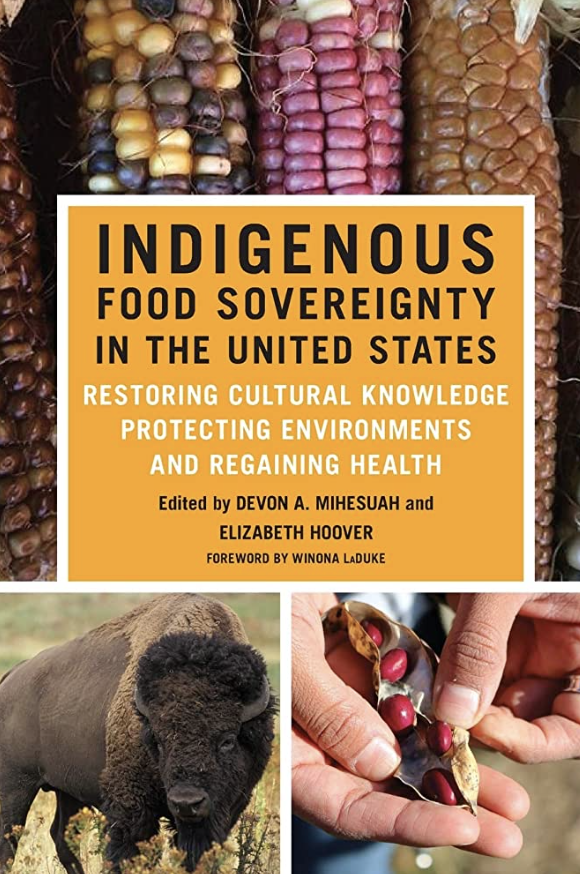Welcome to our new series where council members review a food system book of their choice. Stay tuned for more book reviews and feel free to submit a request!

Indigenous Food Sovereignty in the United States
Edited by Devon Mihesueh and Elizabeth Hoover
February 2023 Book Review by Council Member: Sarah Chatterley
This anthology of stories is told by Indigenous peoples who are experts in food sovereignty and is an informative, detailed, and thorough exploration of indigenous food sovereignty. The book defines indigenous food sovereignty, how it differs from other definitions of food sovereignty, its vital importance, and what can be done to advance indigenous food sovereignty across the United States. The book focuses on the following parts of the food system: growing and harvesting; processing and distributing; and access.
Many definitions of food sovereignty state that all people should have the right to food yet do not specify how, where, and by whom that food should be produced, which encourages a focus on food policy that maximizes production. Indigenous food sovereignty includes the right of peoples to define their own food and agricultural policies, which instead focus on “responsibility to care for each other and all our relatives, whether they have wings, fins, roots, or paws,” Winona LaDuke describes.
Colonization forced Indigenous communities to become dependent on the industrial food system, which is not designed to be in the best interests of Indigenous communities or (Mother) Earth. Restoring health to Indigenous communities looks like decolonizing the food system and Indigenous communities returning to traditions that sustain them. For example, relearning and transferring ethnobotanical knowledge around the importance of seeds, which our current food system largely does not promote or value. Seed sovereignty activist Rowen White describes seeds as “life capsules of memory,” while chef Nephi Craig describes a corn kernel as “an Indian microchip.”
Working toward Indigenous food sovereignty aligns with the vision and mission of the KCFPC. However, it requires transformation: the food system must value and be rooted in Indigenous communities. I enjoyed the book and highly recommend it!